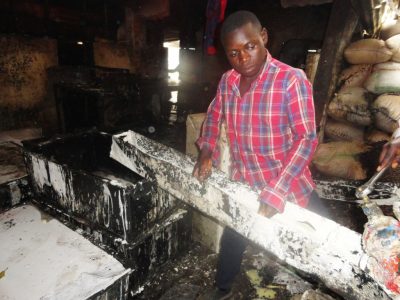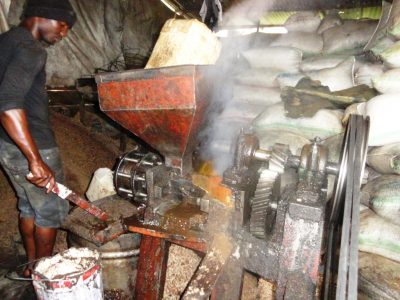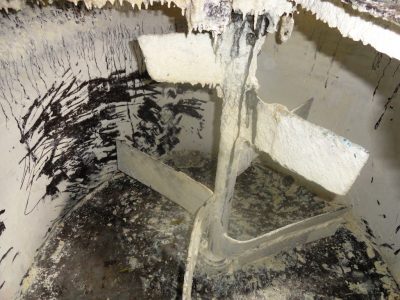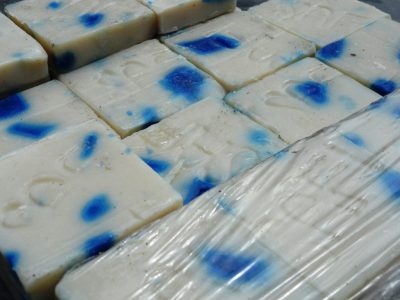By
Elvis Katsana
Welcome to the ‘Working Congo Prosper’ factory in Goma, Democratic Republic of the Congo. Here, Doctor Richard Bulambo, rather than continue in medicine, chose to create a number of employment opportunities for the local youths by starting a soap manufacturing factory.
The artisanal factory hires thirty young Congolese nationals and has the ability to produce over 3000 pieces of “Kifebe” soap each day, that is to say hand-made, using three important machines: a mixer, a boudineuse (extruder) and a press. The goal of the initiator of this factory, Richard Bulambo, is to create the employment for the young and reduce poverty. ‘’We should all participate in the creation of employment, to reduce unemployment and contribute to the development of our country, through local production,” he explains.
”Auto-motivation in solidarity’‘
The ”Kifebe” soap makes a monthly turnover of approximately 8 million Congolese Francs (6, 500 Euros), according to Erick, supervisor of works. “To produce the soap in this way, that we baptised ‘Safi’ (own) soap, it is necessary to use palm oil extracted from walnut palm seeds.”
“This is then cooled and mixed with other chemicals such as caustic sodium carbonate and dye “, explained Erick, who reserved the right not to mention the other ingredients for reasons of professional confidentiality. What is not a secret however is that the walnut palmists seeds are supplied from the city of Beni, 150 kilometers to the north of Goma.
The particularity of the production of this soap, is that it is produced by workers in teams. ‘’We work in teams of five people, and our salary is collective by group in order to motivate our self mutually in solidarity “explained Julian Kapende, a craftsman who has worked for three years in the industry.” “We pocket 10 dollars (7, 20 Euros) each ‘bashe’ (a measure of walnut palm seeds), working out to 2 dollars per person.”
“As we make at least two “bashes” per day, my daily salary therefore comes to to 4 dollars, which makes 120 dollars each month. We work every day, even Sundays and the holidays, because we need the money”, explained Julian.
“The new partners are welcome”
The advantage of the Kifebe, it that it is a very attractive and competitive price on the market, 100 Congolese Francs for each unit (0,80 Euros). Given the low incomes of the farming population of the North Kivu people, soap is in great demand throughout the various villages of the province” explained Jean Kasereka, who works in the service of soap fragmentation. According to him, the people in these surroundings don’t have as much money as the townsmen who prefer the perfume soaps.
Richard Bulambo however states that there is a lot that still needs to be done to improve work conditions in this industry. “The injection of new investment in this business is necessary’, new partners being very welcome” he added.






No Comments Yet!
You can be first to comment this post!